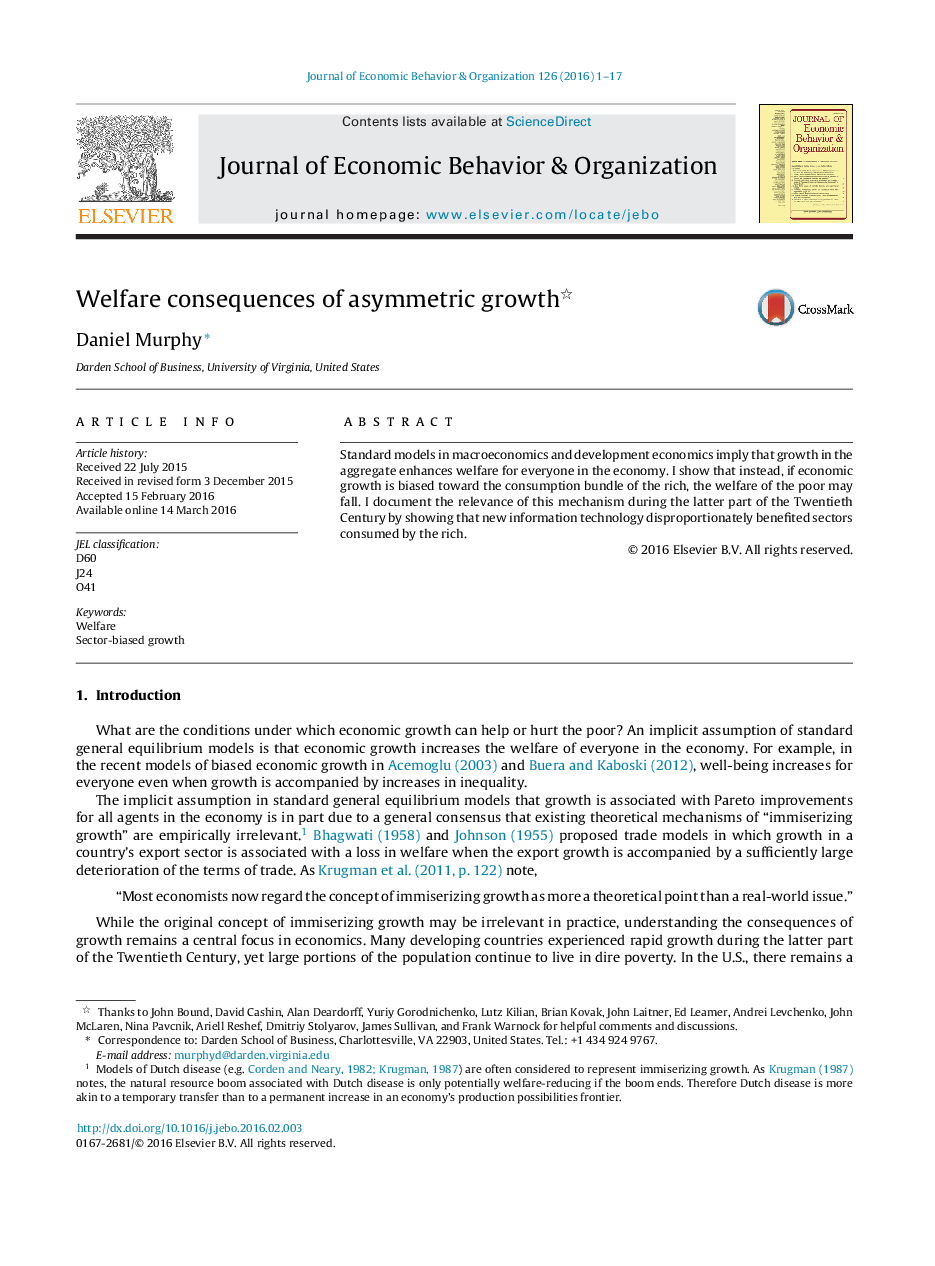| Article ID | Journal | Published Year | Pages | File Type |
|---|---|---|---|---|
| 883389 | Journal of Economic Behavior & Organization | 2016 | 17 Pages |
Abstract
•Economic growth during the 1990s was biased toward sectors that the rich consume.•The new theory demonstrates that sector-biased growth may cause falling welfare.•Evidence on the evolution of hardship is consistent with the theory.
Standard models in macroeconomics and development economics imply that growth in the aggregate enhances welfare for everyone in the economy. I show that instead, if economic growth is biased toward the consumption bundle of the rich, the welfare of the poor may fall. I document the relevance of this mechanism during the latter part of the Twentieth Century by showing that new information technology disproportionately benefited sectors consumed by the rich.
Related Topics
Social Sciences and Humanities
Economics, Econometrics and Finance
Economics and Econometrics
Authors
Daniel Murphy,
